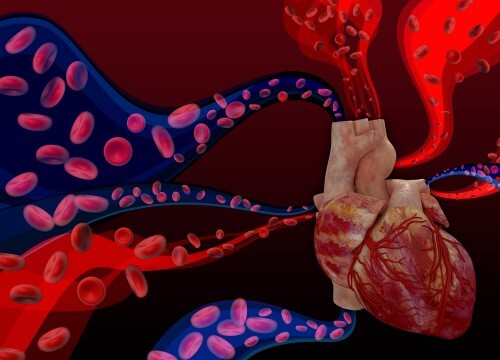This is according to a study by researchers from the Faculty of Medicine at the Hebrew University that was accepted for publication in the journal PNAS

Cardiovascular diseases (heart and blood vessels), such as heart failure, are one of the main causes of death in the Western world. Heart failure is defined as the heart's inability to pump blood to the various body organs in an amount that will meet the system's requirements. Cardiac hypertrophy is basically an adaptive process, but when it is excessive, prolonged and unbalanced, it becomes pathological. This phenomenon leads to heart failure and arrhythmias.
The transition phase between the normal and pathological state has been studied for many years. It is clear that finding the reasons for this process will allow early medical intervention and prevention of irreversible damage to the heart muscle.
In her PhD thesis, which was just accepted for publication in the prestigious American journal PNAS, Inbal Rahmin described for the first time the Erbin protein as an important brake in balancing the hypertrophic growth of the heart muscle. Her findings showed that damage to this protein led to overgrowth, a decrease in its function and severe pathological hypertrophy. Ms. Rahmin performed the work under the guidance of Prof. Ehud Razin and Dr. Sagi Tschuri from the Faculty of Medicine at the Hebrew University of Jerusalem. Her research indicated a significant decrease in Erbin protein expression in heart tissue of patients suffering from heart failure. Moreover, the induction of hypertrophy in Erbin-deficient mice led to the premature death of all these mice, compared to a mortality of about 30 percent observed in the control group. From the histopathological examination, it appears that heart failure was the main cause of this mortality of the mice.
Additional implications for this important research are in the field of breast cancer treatment. Erbin interacts with the Her2/ErBb2 receptor. which is more pronounced in about 30 percent of breast cancer cases. The accepted treatment in these cases is the use of an antibody called Herceptin directed against this receptor. Studies have shown that 5-10 percent of breast cancer patients who received this treatment combined with chemotherapy showed a significant decrease in heart function.
This research was carried out in close collaboration with the following researchers: Prof. Dan Gilon, Director of the Non-Invasive Cardiology/Echocardiography Unit in the Heart Unit at Hadassah Ein Kerem Hospital, Dr. Eli Golomb from the Pathology Department at Shaare Zedek Hospital, and with Prof. Roger Poe from NUS University in Singapore .
